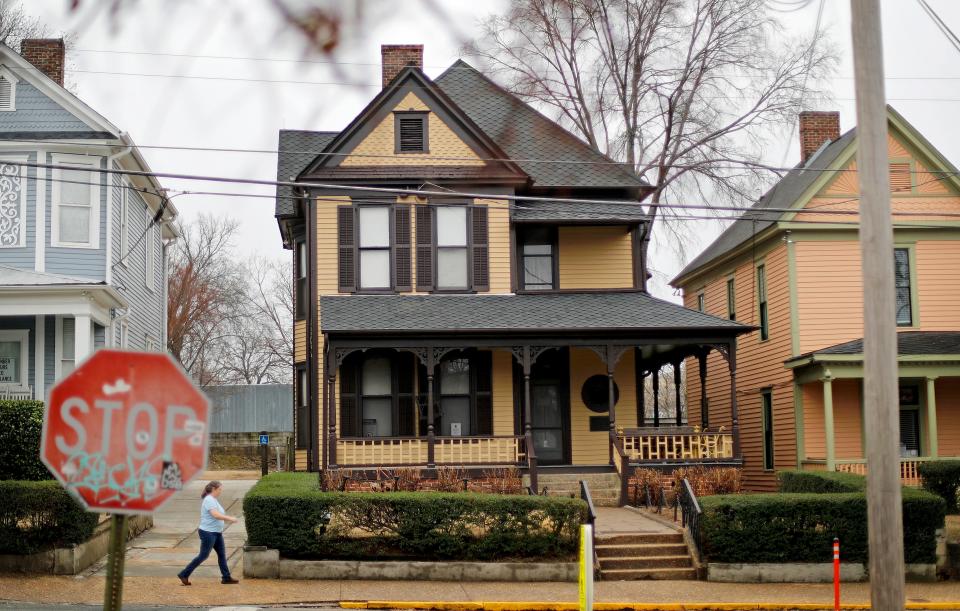Woman arrested after trying to pour gasoline on Martin Luther King's birth home, police say
- Oops!Something went wrong.Please try again later.
A woman was arrested in Atlanta after authorities say she was caught attempting to pour gasoline on the birth home of Martin Luther King Jr.
The incident happened around 5:45 p.m. Thursday, according to Atlanta police, who said in a release they responded to a report of vandalism in progress at King's birth home, near the King Center. Police say a 26-year-old female suspect was detained after she was stopped by multiple citizens.

Channel 2 in Atlanta reported the woman was initially detained by two off-duty NYPD officers visiting the center until local police could arrive. Police told Channel 2 she was spotted pouring gasoline on the home by two tourists from Utah, who interrupted her.
The woman, whose name has not been released, was arrested and charged with second degree criminal attempted arson and interference with government property.
The investigation is ongoing, police said in a release.
In a statement posted on social media, the King Center said the attempt to burn down King's birth home was unsuccessful, thanks to the "brave intervention of good Samaritans and the quick response of law enforcement."
"Our prayers are with the individual who allegedly committed this criminal act," the King Center added.
King home is an important place for education and reflection
The two-story Queen Anne-style home was initially built for a white family, but was purchased by King's grandfather, the Rev. Adam Daniel Williams, in 1909, according to the National Park Service. King's parents later had three children in the family home and lived there until after his grandparents' deaths, according to NPS.
Lerone Martin, director of the Martin Luther King Jr. Research and Education Institute at Stanford University, said the home is critical for understanding King's legacy.
"It protected him from the vicious attacks of white supremacy, but it also armed him with a sense of dignity, as he would say, 'a sense of somebodyness,' that enabled him to go out into the world and become the man that he became," he said.
Martin said while this incident is different from other attacks on Black history in the education system, it highlights the importance of preserving African American communities and institutions.
"A historic site like the King home is a place for historical reflection. It's a place for educational reflection," he said. "And I'm just so thankful that the bystanders who were there decided that it was important enough to intervene to prevent the destruction of a really important historic site in not just the Black experience, but the American experience."
Contributing: N'dea Yancey-Bragg, USA TODAY
This article originally appeared on USA TODAY: MLK house vandalism: Woman tried pouring gasoline on childhood home

